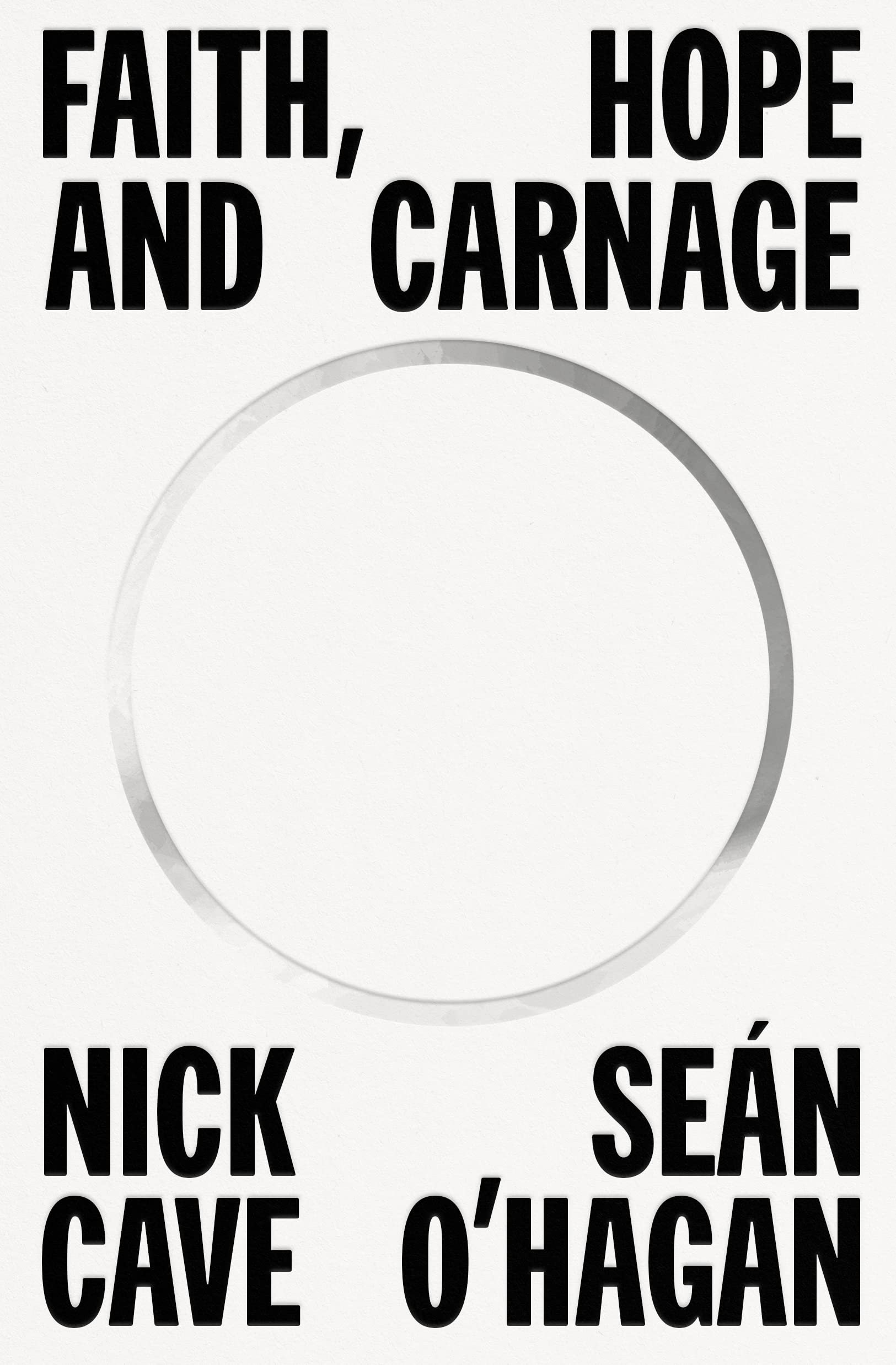Last month, I was pleased to receive a copy of Faith, Hope and Carnage as a Christmas present, as I’d heard about the book but hadn’t gotten around to buying it. The book os co-authored with Sean O’Hagan, but their collaboration was not in the traditional sense of celebrity biographies (i.e., the celebrity lends his name and the partner does all the actual writing).
For one thing, the book wasn’t written in the traditional sense. Rather, it is the transcript of an extended interview with Cave, conducted through phone calls over a roughly year-long period. The start of the timeline is shortly after the first COVID lockdowns, which are to some extent an impetus (a book written by phone being an apt medium in the era of social distancing).
The pandemic is thus naturally a subject for discussion, but the biggest theme is certainly Cave’s experiences as a grieving father in the wake of his son’s death in 2015. I doubt the years lessen the pain in an absolute sense, but they do offer Cave some time in which to reflect and articulate the experience, which those without children can never understand, and those (like me) who have kids but have not lost one can sense only as a sort of vertigo. I make no claims that I can in any way truly understand the abyss the grieving parent plunges into, but since becoming a parent, I can, in contemplating such a thing, peer queasily over the edge.
Though the book deals in grief, O’Hagan’s questions never feel exploitative. He is a good interviewer, probing where he senses more could be said without driving the conversation, pushing back on some statements in a way that is not confrontational, but prompts Cave to delve a little deeper or offer a clearer sense of his meaning. This isn’t needed often, for Cave is, in my opinion, a great thinker. There is an unfortunate tendency to assume people in a creative field have an innate understanding of larger issues, but Cave has long struck me as someone who truly thinks deeply about things. He is the sort of religious person that I greatly admire. Not a zealot, because zealots are invariably shallow thinkers who don conviction as a kind of flashy armor, but one who doubts as much as they believe. One whose belief is fueled, almost paradoxically, by that doubt. As someone who struggled with belief and wound up on the other side of the equation, it is always fascinating to me to read from someone who wrestled with the same questions and reached the opposite conclusion.
Of course, Cave is known most of all as a musician, and while the book avoids the trappings of the standard music interview (when’s the new album out? What does this song mean? Who are your favourite artists?) some discussion of his work is inevitable—and much appreciated. It’s particularly intriguing to read his discussions with Sean while in the process of writing Carnage with Warren Ellis.
I loved this book, loved it’s intimacy, loved Cave’s passion that has mellowed with wisdom into a surprising optimism. I was sad when it ended. As a Cave fan, I’m certainly the target audience, but I’ve also never been huge on biographies or books about my favourite bands for their own sake. Too often, these feel more like collector’s items than works of literature. This one is different. I would recommend it to people who haven’t even heard of Nick Cave and the Bad Seeds. What Cave has to say cuts deeper than fandom.






